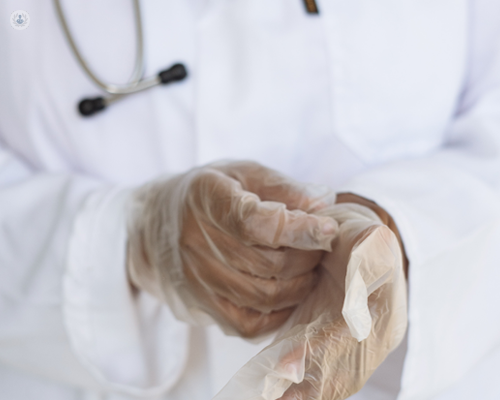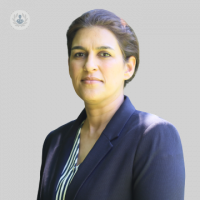Proctology exam - what to expect
Autore:Proctology examinations can be very daunting for patients. Most are unsure of what they involve and fearful of how painful they will be. Luckily, esteemed consultant colorectal surgeon Ms Rana Madani took the time out to share with us the answers you want to know to the questions you might not want to ask. The Chertsey-based surgeon details what exactly the exam involves and what to expect during it.

What is a proctology exam?
A proctology examination is an examination of the rectum and anus, that is performed when symptoms of a disorder in the rectum or colon are present.
What are the reasons for a proctology exam?
A proctology exam is performed when patients complain of bleeding from the rectum, they might have a change of bowel habits, they might experience pain in the anus either when they're passing motion or at any time, it may be that they have piles or have discharge, or they can feel a lump. So, there's a variety of reasons why we would look and inspect to see what the causes are. Based on that examination, we can formulate a treatment pathway to help patients with those symptoms.
What happens during a proctology exam?
We would start by explaining what a proctology examination is at the beginning because everyone's quite concerned and it's quite an intimate examination, that makes most patients feel uncomfortable. Doctors will always explain what they’re going to do, so the patient understands the procedure.
During a proctology exam, patients lie on their left side and the area is visually inspected first. The doctor will look for any cuts or any fissures, which are painful cuts in the anus. They will see whether there are any external piles or skin tags or whether there are any scars from any previous operations which may be causing pain. During this physical examination, the doctor will look and take all this information into account.
Then a rectal examination with a gloved finger would be performed. If it's painful, it would be stopped. A finger examination aims to feel if there's any mass, are there any polyps, or if there's anything uneven that can be felt. This is then followed by a proctoscopy and/or a rigid sigmoidoscopy.
A proctoscopy is a small plastic tube that goes into the anal canal and is used to look at the anus. It's usually for things like an assessment of the grades of the piles because depending on the grade of the pile you have different treatment options. In this instance, we can see what grade they are, what options of treatment are available. Additionally, some patients can have polyps exactly in the anal canal, fissures, or so forth. This apparatus also allows doctors to look for fistulas which can also be a problem.
The next step which sometimes is required is called a rigid sigmoidoscopy. It’s the insertion of a longer tube in the rectum to look further up. A small amount of air is blown into the anus to open up the rectum and have a look inside. It’s quite useful for what has already been mentioned, but sometimes you have inflammation of the lining of the bowel, called proctitis, and this method is quite helpful for that sort of diagnosis.
How do you prepare for a proctology exam?
Patients don't need to do anything in terms of preparing themselves. They can inform themselves of what's going to be happening and understand the steps, but nothing needs to be done at home before coming to a proctology exam.
How long does a proctology exam take?
A proctology examination is generally quite quick, lasting about five minutes at the most. If it's painful, it is halted. On the one hand, the patient shouldn’t be in pain, and on the other when a patient is in pain, inevitably they’re going to clench, which can impact the exam. In these cases, doctors wouldn't proceed.
If you are interested in booking a consultation with Ms Rana Madani, you can do so directly through her Top Doctors profile.


